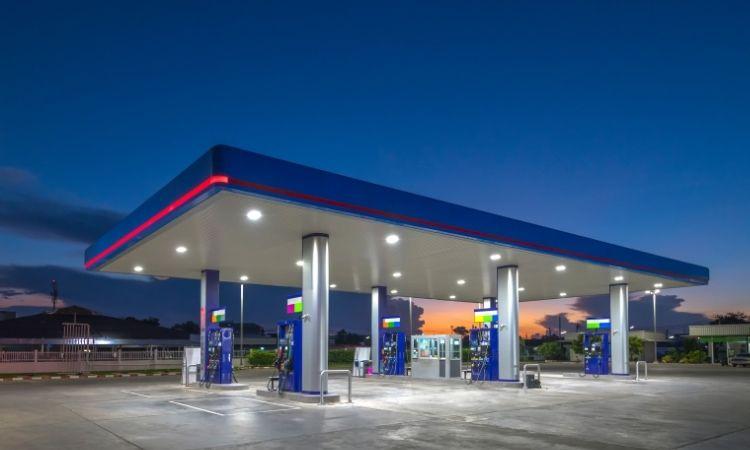In a rapidly transforming mobility ecosystem, the humble fuel station is no longer just a pit stop for gasoline. Once known for their utilitarian purpose, modern fuel stations are evolving into multifunctional energy hubs, equipped to cater to diverse consumer needs and sustainability trends. From eco-conscious fueling options to smart infrastructure integration, the future of fuel stations is more dynamic than ever.
The demand for enhanced convenience, cleaner fuels, and digitally enabled services is reshaping how fuel stations operate across urban and rural environments. Customers today expect far more than just a refuel—they seek a seamless experience, whether it’s contactless payments, EV charging, or quick shopping. This shift is propelling traditional fuel stations toward innovative transformations, ensuring they remain relevant and competitive in the energy transition era.
Expert Market Research: Backing the Momentum with Insight
According to Expert Market Research, the fuel station market is undergoing a transformative shift due to rising global fuel demand, increasing vehicle numbers, and the integration of alternative energy sources. As fossil fuel consumption gradually transitions toward electric and hydrogen-based models, fuel stations are adopting hybrid energy solutions to cater to all kinds of mobility. Their analysis indicates that future-ready stations will serve as hybrid platforms—combining fuel, convenience, EV charging, and even solar-powered utilities—to meet evolving customer preferences and environmental goals.
Rethinking the Role of Fuel Stations in a Digital Age
Fuel stations are quickly aligning with digital advancements to improve efficiency and consumer satisfaction. Smart pumps, mobile app integration, loyalty programs, and AI-enabled inventory tracking are becoming standard features across high-traffic zones. These digital tools not only streamline operations but also personalize services, creating a customer-centric ecosystem. Furthermore, the fusion of automation with sustainability is giving rise to smart energy stations—capable of energy storage, demand forecasting, and intelligent fuel distribution.
This digital evolution isn’t limited to technology alone. It’s about reimagining the user experience. Think of a station where you can recharge your electric vehicle, grab a coffee, order groceries, and use high-speed internet—all without leaving the forecourt. The modern fuel station is gradually becoming a lifestyle destination.
Green Revolution at the Pump: Embracing Clean Energy
The green wave is hitting fuel stations hard—and in the best way. With mounting pressure to reduce carbon emissions, more stations are incorporating biofuels, compressed natural gas (CNG), liquefied petroleum gas (LPG), and electric vehicle (EV) charging infrastructure. Hydrogen fuel, once considered futuristic, is now a promising addition to long-haul transportation hubs and highway stations.
Several fuel companies are installing solar panels, water recycling systems, and LED lighting to minimize their ecological footprint. This green approach is also a strong consumer magnet, especially among eco-conscious drivers who prefer energy-efficient services. Sustainability isn’t just a buzzword anymore—it's becoming a business imperative for fuel station operators looking to stay ahead of the curve.
Redesigning Experiences: The Rise of Convenience-Centric Stations
The boundary between a fuel station and a convenience store is disappearing fast. Today’s consumers want efficiency, speed, and added value. Whether it’s buying essentials, using an ATM, or enjoying a quick meal, fuel stations are stepping up to deliver a complete service portfolio. Some have even transformed into micro-retail hubs, with branded food chains, e-commerce pickup points, and automated vending systems.
As consumer behavior continues to lean toward multifunctionality, the "gas-and-go" model is being replaced by the "stop-and-shop" philosophy. This convenience-first mindset is particularly appealing in urban settings, where time-saving solutions are highly prized. In fact, the success of a fuel station may soon depend less on the type of fuel it offers and more on the overall experience it provides.
EV Integration: Accelerating the Energy Transition
Electric vehicles (EVs) are the undeniable disruptors of the fuel station market. As the global EV fleet grows, charging infrastructure is becoming an essential component of station upgrades. Fuel stations that incorporate fast-charging units, solar energy capabilities, and digital tracking tools are expected to gain a competitive edge.
But there's a challenge—charging takes more time than refueling. This creates a golden opportunity for fuel station owners to offer engaging experiences while customers wait. Lounges, coworking spaces, infotainment zones, and retail offerings are just a few strategies being explored to enhance the dwell time and generate additional revenue.
Smart Mobility and AI: The Next Fuel Station Frontier
Artificial Intelligence and the Internet of Things (IoT) are set to revolutionize fuel station operations. Predictive maintenance, fuel demand forecasting, automated inventory restocking, and dynamic pricing models are already being piloted in advanced markets. These technologies help optimize performance, reduce costs, and improve safety—all while providing a frictionless customer journey.
AI can also track user patterns and suggest ideal fueling times, recommend nearby stations, and even offer personalized discounts through mobile apps. This shift toward data-driven decision-making is transforming fuel stations into smart energy nodes within the broader mobility network.
Looking Ahead: What Will Tomorrow’s Fuel Stations Look Like?
The future of fuel stations is undeniably hybrid, smart, and customer-first. These spaces are no longer just functional stops—they’re being redefined as service hubs that balance energy innovation, retail convenience, and sustainability. From EV charging ports and hydrogen dispensers to integrated cafes and digital services, fuel stations are being reimagined as interactive, technology-powered, eco-friendly environments.
In conclusion, the transformation of fuel stations is a clear reflection of how mobility, energy, and consumer behavior are converging. Forward-thinking companies that invest in infrastructure, sustainability, and digital services will not only retain relevance but also drive the future of mobility. The journey of fueling up is no longer about the tank—it's about the experience.



